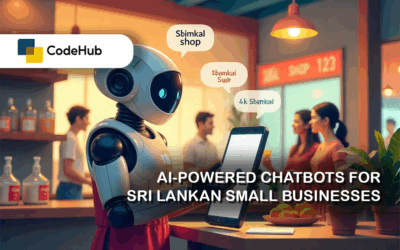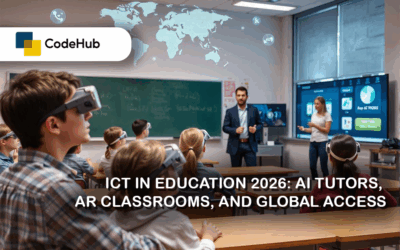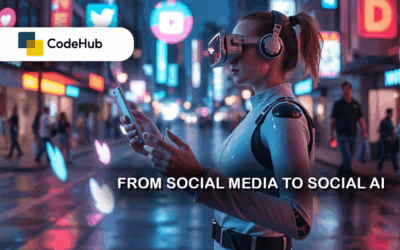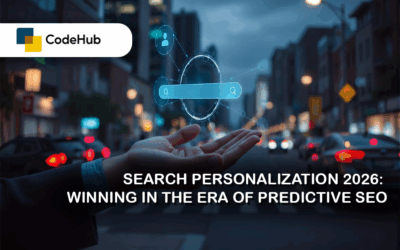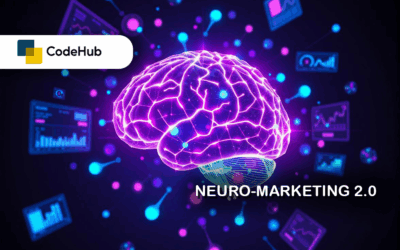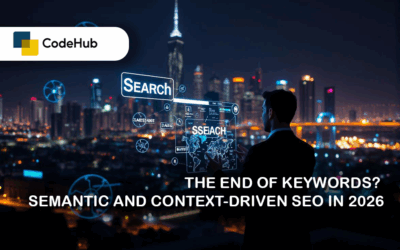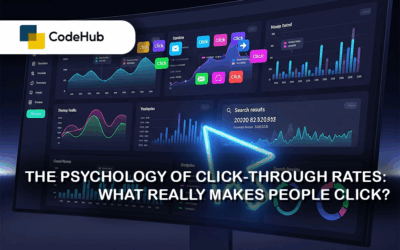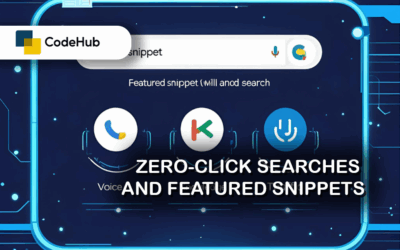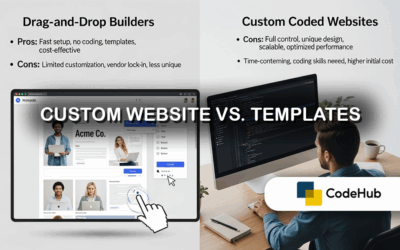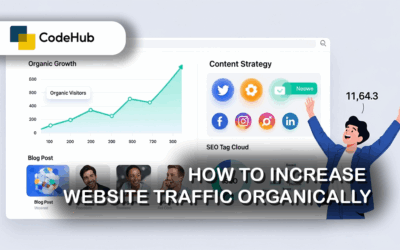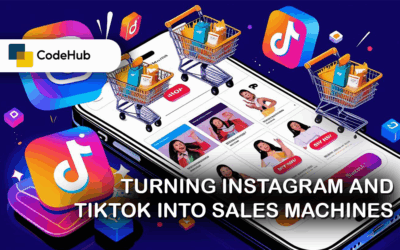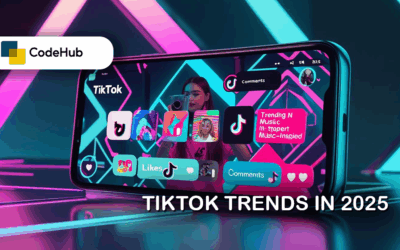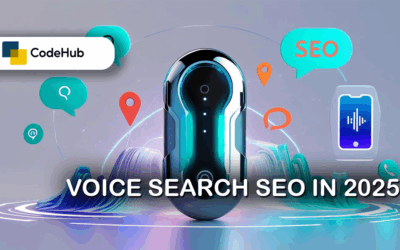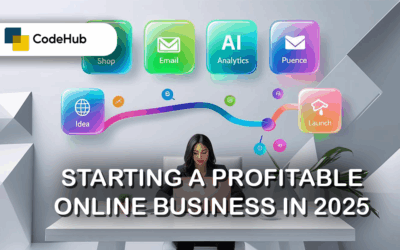Blog
Women in Tech: Stories & Opportunities in Sri Lanka
Technology is often seen as a male-dominated field, but in Sri Lanka, women are increasingly breaking barriers and making remarkable contributions to the tech industry. From software engineers and UI/UX designers to digital entrepreneurs, these women are not only...
Choosing Between Multi-Cloud and Hybrid Infrastructure: A Guide for Sri Lankan Enterprises
Cloud computing has become the backbone of modern business, but the question isn’t whether to adopt it—it’s how. Enterprises today face two popular choices: multi-cloud and hybrid infrastructure. While both offer flexibility and resilience, each comes with trade-offs....
Low-Code Automations for Rural SMEs in Sri Lanka
Small and medium enterprises (SMEs) form the backbone of Sri Lanka’s economy, especially in rural regions where innovation often emerges out of necessity. Yet, many SMEs still struggle with outdated processes—manual record keeping, delayed communications, and...
Building Accessible Web Apps: Best Practices for Inclusivity in Sri Lanka
The internet was built to connect people, yet too many websites and apps unintentionally exclude users with disabilities. For a diverse nation like Sri Lanka, where millions of people may face visual, auditory, or mobility challenges, building accessible digital...
AI-Powered Chatbots for Sri Lankan Small Businesses
In today’s digital-first world, customer expectations are sky-high. People want instant answers, 24/7 support, and a personalized experience—all without waiting in line or being put on hold. For small businesses in Sri Lanka, from clothing boutiques in Galle to food...
Demystifying DevOps for Sri Lankan Startups
For startups, speed is everything. Launching quickly, iterating often, and delivering a reliable product to market can make or break a business. This is where DevOps comes in—not as a complicated buzzword, but as a culture of collaboration and automation that bridges...
From Web3 to Real-World Use Cases: Blockchain Solutions for Sri Lankan Industries
Web3 is no longer just a buzzword floating in the global tech conversation; it’s steadily evolving into practical solutions that solve real-world problems. While cryptocurrencies and NFTs grab the headlines, the underlying blockchain technology is quietly transforming...
The Role of ICT in Space Economy: Satellite Internet & Beyond
The space economy is one of the fastest-growing sectors globally, and ICT is at the heart of this transformation. By 2026, satellite internet, AI-powered spacecraft, and global connectivity will redefine how businesses, governments, and individuals interact with space...
ICT in Education 2026: AI Tutors, AR Classrooms, and Global Access
The education sector is being transformed by ICT. By 2026, classrooms are becoming AI-powered, AR-enhanced, and globally accessible, offering personalized and immersive learning experiences. AI tutors provide individualized guidance, adapting lessons to each student’s...
From Social Media to Social AI: How Virtual Influencers Will Dominate by 2026
The world of digital marketing is shifting from traditional human influencers to AI-generated virtual influencers. By 2026, many top social media “personalities” will not be real people, but highly sophisticated AI characters with large followings. These virtual...
Search Personalization 2026: Winning in the Era of Predictive SEO
Search engines are becoming predictive, personalized, and highly intelligent. By 2026, every user sees search results tailored specifically to their behavior, preferences, and context. Instead of searching generically for “best smartphone 2026,” predictive search...
Neuro-Marketing 2.0: Using Brainwave Data for Personalized Ads
Marketing has always relied on understanding human psychology. Colors, words, and imagery are designed to trigger emotions and influence purchasing decisions. By 2026, this approach has evolved into Neuro-Marketing 2.0, which uses brainwave data, biometrics, and AI to...
The End of Keywords? Semantic and Context-Driven SEO in 2026
For decades, SEO revolved around keywords. Businesses competed to rank for exact-match phrases, often overusing them to grab Google’s attention. However, as we move into 2026, the SEO landscape has transformed dramatically. Keywords are no longer the ultimate ranking...
Progressive Web App (PWA) vs Native App: which you should build
When businesses decide to create an app, they often face the Progressive Web App (PWA) vs Native App debate. Both have their strengths, but the best choice depends on your business needs, audience, and budget. Progressive Web Apps are websites that behave like apps....
Product Page SEO: How to Make Your Listings Rank & Convert
Your product pages are the heart of your ecommerce business. They’re not just there to display products — they’re your 24/7 sales representatives. That’s why Product Page SEO is essential for attracting the right customers and converting them into buyers. The first...
AI Ethics in 2025: Balancing Innovation with Responsibility
Artificial Intelligence is now part of almost every industry — from healthcare to marketing to finance. While AI brings massive opportunities, it also raises serious ethical questions. As we enter 2025, AI ethics is not just a conversation for tech experts — it’s a...
Voice Search Optimization: The Next Big Step in SEO
With the rise of smart speakers and AI assistants like Siri, Alexa, and Google Assistant, voice search is becoming a major player in the SEO game. People are no longer just typing queries — they’re speaking them. This shift changes how businesses should think about...
Micro-Influencers vs. Mega-Influencers: Which Brings Better ROI?
In the world of digital marketing, influencer partnerships are now one of the most powerful tools to reach targeted audiences. But when brands consider influencer marketing, they often face the same question: should they partner with mega-influencers who have millions...
The Psychology of Click-Through Rates: What Really Makes People Click?
When you scroll through Google search results or browse social media, have you ever wondered why some links feel irresistible to click while others get ignored? That’s the magic — or rather, the psychology — behind Click-Through Rates (CTR). CTR measures how often...
Space Tourism: The Future of Travel in 2025
Space tourism, once a science fiction fantasy, is now a tangible industry in 2025. With companies like SpaceX, Blue Origin, and Virgin Galactic leading the way, civilians can now book trips to the edge of Earth’s atmosphere or even low Earth orbit. The new space race...
The Rise of No-Code Plugins for WordPress Developers in 2025
In 2025, WordPress development is entering a new era with the rapid rise of no-code plugins. These tools are empowering non-developers to build and customize websites with minimal technical knowledge. For developers, it means faster prototyping, quicker deployments,...
Zero-Click Searches and Featured Snippets: Winning Without the Click
As zero-click searches become more prevalent in 2025, traditional metrics like click-through rate (CTR) are losing their dominance. A zero-click search occurs when a user’s query is answered directly on the SERP (Search Engine Results Page) without needing to visit a...
SEO in 2025: Preparing for Google’s Search Generative Experience (SGE)
Search engine optimization (SEO) is undergoing its most significant transformation in years with Google’s rollout of the Search Generative Experience (SGE). This AI-powered enhancement to search aims to provide more comprehensive answers by summarizing content...
How Hyper-Personalization Is Reshaping Online Advertising
The era of generic advertising is fading. In 2025, brands are adopting hyper-personalization—an advanced strategy that goes beyond basic segmentation to deliver uniquely relevant experiences to each individual customer. Powered by big data and AI,...
Top 7 AI Tools Revolutionizing Digital Marketing in 2025
As the digital marketing landscape continues to evolve rapidly, artificial intelligence (AI) is becoming the most transformative force in the industry. In 2025, marketers are leveraging AI not only to automate tasks but also to gain deeper insights, drive...
Top Features Customers Want in Mobile Apps Today
In today’s fast-paced digital world, mobile apps are no longer a luxury—they’re a necessity. Whether you're launching an e-commerce platform, a food delivery service, a ride-hailing app, or a fitness tracker, user expectations have evolved. Customers want apps that...
5 Common Mistakes to Avoid When Building Your Website
Your website is often the first impression customers get of your brand—don’t blow it with avoidable mistakes. Whether you’re DIY-ing or hiring a developer, steer clear of these common pitfalls: 1. Ignoring Mobile Optimization Over 60% of web traffic now comes from...
Custom Website vs. Templates: What’s Best for Your Business?
Choosing between a custom-built website and a template can be overwhelming—especially for small businesses with limited budgets. Here’s a breakdown to help you decide what works best for your goals. What Are Templates? Website templates (e.g., from WordPress, Wix, or...
How to Increase Website Traffic Organically
Getting people to your website without paying for ads is the dream, right? Organic traffic is not only cost-effective but often converts better because it’s built on intent. Here’s how you can start growing your organic traffic today. Create Value-Driven Content Write...
The Role of Digital Marketing in Growing Your Online Store
Launching an online store is only half the battle—the real challenge is attracting visitors and converting them into loyal customers. That’s where digital marketing steps in. It’s not just about ads and social posts; it’s a full strategy built to scale your brand....
How to Rank on Google: A Beginner’s Guide to Climbing the Search Ladder
In today’s digital-first world, ranking on Google is no longer optional—it’s essential. Whether you’re running a blog, an e-commerce store, or a corporate website, appearing on the first page of search results can significantly boost your visibility, traffic, and...
React vs Angular in 2026: Which Should You Learn or Hire For?
In 2026, both React and Angular remain popular JavaScript frameworks, but each has evolved with distinct strengths. Whether you're a developer picking your next skill, or a company hiring for your tech stack, here’s what you need to know. React in 2026 Lightweight,...
Social Commerce 2.0: Turning Instagram and TikTok into Sales Machines
In 2025, Instagram and TikTok are no longer just for likes and follows—they're direct sales engines. Welcome to Social Commerce 2.0, where product discovery, engagement, and checkout all happen in-app. New Social Shopping Features Instagram’s product tagging in Reels...
TikTok Trends in 2025: How Brands Are Going Viral with Less Effort
TikTok remains a dominant force in 2025, not just for entertainment, but as a full-scale marketing platform. Going viral is no longer a stroke of luck—it's a repeatable formula if you know what works. What’s New on TikTok in 2025? AI-generated video scripts and edits...
How AI Tools Are Transforming Digital Marketing Campaigns
Digital marketing in 2025 is powered by artificial intelligence, making campaigns smarter, faster, and more personalized. Whether you're a small business or a large agency, AI tools are changing how we plan, execute, and analyze marketing. AI in Ad Copy and Creative...
Voice Search SEO in 2025: How to Optimize for Spoken Queries
The way people search online is evolving, and voice search is at the center of this change. With smart assistants like Alexa, Siri, and Google Assistant becoming everyday tools, SEO in 2025 must account for spoken queries and conversational keywords. Why Voice Search...
From Idea to Launch: Starting a Profitable Online Business in 2025
Starting an online business in 2025 has never been more accessible, thanks to no-code tools, AI automation, and a global digital economy. However, turning a good idea into a profitable venture still requires strategic planning, market awareness, and the right toolkit....
Zero Trust Security Models: Implementation Tips for 2025
In today’s cybersecurity landscape, traditional perimeter-based security models are no longer enough. With hybrid workforces, cloud services, and an increase in mobile devices, organizations need a more robust approach. That’s why Zero Trust has become the go-to...
How GPT-5 Is Reshaping Software Development in 2025
Artificial intelligence is changing the way we build software, and GPT-5 is at the forefront of this transformation. In 2025, developers use GPT-5 not just to write code, but to design systems, review logic, and even learn new technologies. GPT-5 understands complex...
Building Scalable Apps with Micro-Frontend Architecture
As applications grow larger and more complex, the traditional approach of building a single frontend for everything becomes harder to manage. In 2025, many developers are turning to micro-frontend architecture to solve these challenges. This approach breaks down the...





